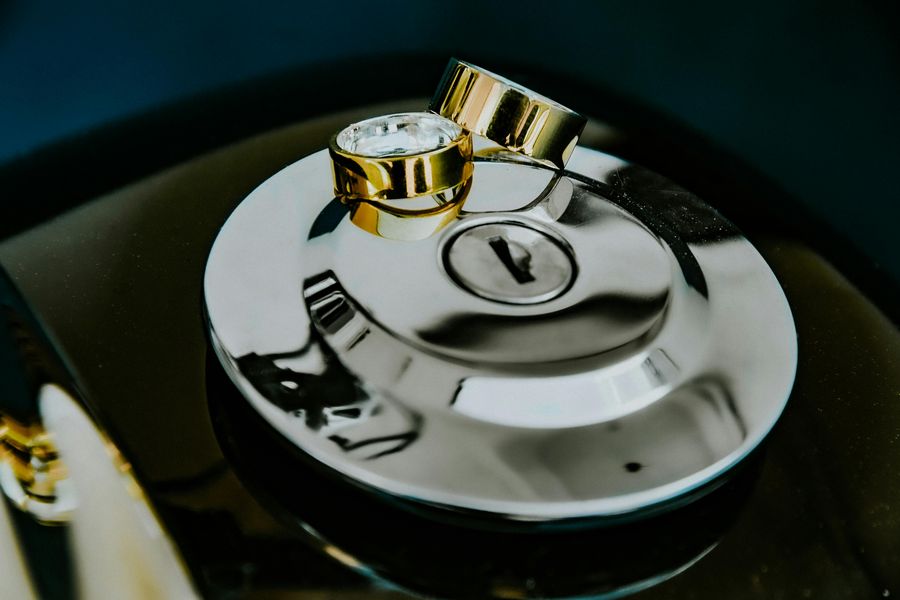The Importance of Being a Good Listener in Relationships
We’ve all been told that communication is key in any relationship, but have you ever considered the importance of being a good listener? A lot of us are quick to talk, but not so quick to listen.
However, just as much as it’s important to express ourselves in a relationship, it’s also important to be actively present when our partner is communicating with us. Here are some reasons why:
Creates a Safe Space
When you listen attentively to your partner, you help create a safe space where they can express themselves freely without fear of judgement. This not only allows them to open up about their thoughts and feelings, but also builds trust and intimacy in the relationship.
Improves Communication
When both partners are actively listening, communication becomes more effective and productive. Misunderstandings are less likely to occur, as both parties are making a conscious effort to understand each other’s perspectives.
Shows Mutual Respect
Listening to your partner reinforces the idea that you value what they have to say and respect their thoughts and feelings. This is key in building a strong foundation of mutual respect and understanding in a relationship.
So, how can you become a better listener in your relationship?
Listen More Frequently
Make it a point to actively listen to your partner on a regular basis. Whether it’s during dinner, while on a walk or before bed, setting aside a specific time to communicate and listen will strengthen your relationship.
Remember Communication is a Two-Way Street
Communication isn’t just about talking, but also about listening. Make sure to give your partner the same attention and respect you would expect in return.
Be Attentive
Focus on what your partner is saying. Avoid distractions and make eye contact to show that you’re fully present and engaged.
Don’t Interrupt
Allow your partner to fully express themselves without interrupting. This will show that you value their thoughts and opinions.
Be Mindful of Subtle Hints
Pay attention to your partner’s body language and subtle hints. They may not always express themselves directly, but their nonverbal cues can speak volumes.
Show Enthusiasm
Show enthusiasm and genuine interest in what your partner is sharing with you. This will encourage them to continue opening up and sharing their thoughts and feelings.
Have Patience
Be patient and understanding when your partner is expressing themselves. Avoid getting defensive or dismissive, as this can shut down the conversation and make them hesitant to communicate in the future.
Don’t Judge
Avoid jumping to conclusions or placing judgement on what your partner is sharing. Keep an open mind and try to see things from their perspective.
Understand What They are Saying
Take the time to understand your partner’s thoughts and feelings. Reflect back on what they’ve shared, ask clarifying questions and acknowledge their perspective.
Benefits of Listening in Relationships
When both partners are actively listening, the benefits spill over into many aspects of the relationship.
Individual Thoughts and Feelings in Relationships
When partners are actively listening to each other, they develop a deeper understanding of each other’s thoughts and feelings. This leads to a stronger emotional connection between the two, which is key in maintaining a healthy relationship.
Importance of Listening for Constructive Communication
Active listening allows for better comprehension between partners. Misunderstandings are less likely to occur, as both partners are making a concerted effort to understand each other’s perspectives.
This opens up a constructive dialogue in the relationship, which strengthens the bond between partners. Being a good listener is often an overlooked aspect of communication in relationships.
However, it’s essential for creating safe spaces, strengthening emotional connections and building a solid foundation of mutual respect and trust. By incorporating active listening, you’re setting your relationship up for success.
Creating a Safe and Respectful Space for Listening in Relationships
As we’ve previously discussed, active listening is an essential component of effective communication in relationships. But, in order for communication to be effective, it must be done in a safe and respectful environment.
Here are some tips for establishing such an environment.
Establishing a Safe Space for Sharing
Active listening goes hand in hand with creating a safe environment in which partners can feel comfortable expressing themselves. This involves putting aside your own interests and fully focusing on your partner’s words and nonverbal cues.
Empathy is also key in establishing a safe environment. By listening with empathy, partners can develop a deeper understanding of each other’s concerns and experiences.
This can lead to greater emotional connection and intimacy in the relationship. Openness is also critical in establishing a safe environment.
Encouraging open dialogue and thoughts allows partners to feel like they can express themselves freely without fear of judgment or negative consequences. This can lead to a stronger bond between partners.
Fostering Mutual Respect Through Listening
Active listening fosters mutual respect in a relationship. By focusing on what your partner is saying, you are showing them that you value and recognize their thoughts and experiences.
When partners acknowledge each other’s perspectives and experiences, it creates an atmosphere of mutual respect. Acknowledgment is an essential component of mutual respect.
When a partner listens actively and acknowledges their partner’s thoughts and feelings, it reinforces the idea that they have been heard and understood. Taking the time to repeat their thoughts or feelings shows that you’ve actively heard what they’ve said and respect their perspective.
Building Effective Communication Through Listening in Relationships
Listening actively is the foundation of effective communication in relationships. Active listening involves more than just hearing words; it involves actively focusing on the words and non-verbal cues to gain a deeper understanding of what the speaker is communicating.
Improving Communication Through Active Listening
Effective communication requires a willingness to listen actively. Active listening involves focusing truly on what your partner is saying, being receptive to their emotions and nonverbal cues, and striving to understand what they are communicating.
Openness is critical in effective communication. Being open and receptive to your partner’s thoughts and feelings encourages them to open up and share more freely.
This leads to better understanding between partners. Understanding is key to effective communication.
By truly comprehending what your partner is saying, you can respond appropriately and effectively to their needs. This not only strengthens the emotional connection between partners but also the physical bond by creating a more satisfying sexual environment.
Avoiding Disputes Through Effective Communication
Effective communication is critical to avoiding disputes and misunderstandings. Effective communication requires a willingness to exchange perspectives, thoughts and feelings.
It’s important to remember that communication is a two-way street, and both partners should take turns in listening and talking. When exchanging perspectives, it’s important to truly consider what the other partner is saying and avoid jumping to conclusions or being dismissive.
Using “I” statements and avoiding blaming language is also essential in avoiding disputes. Avoid saying things like “You’re not listening to me” and instead opt for statements like “I feel like we’re not connecting.”
It’s important to validate each other’s feelings and perspectives to avoid disputes.
Acknowledging their thoughts and feelings and expressing empathy and understanding can go a long way in avoiding potential disputes.
Conclusion
In conclusion, building a safe and respectful environment for listening is crucial in effective communication and maintaining a healthy relationship. Active listening requires the willingness to fully focus on your partner’s words and nonverbal cues while fostering empathy, openness, and mutual respect.
Effective communication involves both partners willingness to listen, exchange perspectives and avoid disputes. By incorporating active listening and striving to communicate effectively, you can build a strong and lasting relationship.
Developing Listening Skills and Habits for Better Relationships
Listening is an important skill in communication. It forms the basis of good communication and is essential for fostering mutual respect and intimacy in relationships.
Active listening furthers the communication process, and by learning to listen better, partners can build stronger and more meaningful connections. Here are some tips to develop listening habits and skills that can improve communication and relationships.
Listening More Frequently
One of the most common issues partners face is a lack of communication. Speaking and listening are two sides of the same coin that require equal attention and effort, but many people find it easier to speak than listen.
Good listening requires paying attention to the other party’s words and nonverbal cues. Being mindful of what one is hearing requires self-reflection and introspection.
Ask yourself what is the purpose of the conversation, what you know and what you need to know. Create a list of questions you want to ask about and, then, listen to the response.
Practice active listening frequently, no matter the context.
Being Mindful and Attentive During Conversations
Practicing mindfulness and actively listening in conversation means giving undivided attention to what your partner is saying. Actively focus on the tones and pitches in speaking, and pay attention to non-verbal cues such as body language and facial expressions.
Use eye contact to show that one is fully engaged in the conversation and avoid interrupting the speaker at all costs. Practice patience while waiting for another person to finish speaking, allowing them to express themselves fully and without interruption.
When fully engaged, show enthusiasm, and give verbal cues to let the person know you are engaged and receptive to their message.
Avoiding Judgment and Bias in Listening
The best way to develop an effective listening habit is to remain objective and impartial. Be prepared to listen to thoughts and opinions without letting personal biases impact the conversation.
Show your trust in the speaker by being non-judgmental, providing a comfortable and safe environment where they can express their thoughts openly. Be patient enough to let the other person finish speaking, and provide a non-judgmental response that does not show bias or prejudice.
If you do have questions or comments when the other person has finished speaking, ask them in a non-inflammatory way and seek to understand their perspective fully.
Active Processing of Information and Feedback
Good listeners not only listen actively but also actively process the information they receive. Recall is key to effective listening.
Understanding what you have heard and remembering it when you need it is important. This skill enables you to recall key facts and points that were raised from previous communications.
Active processing of feedback helps develop better communication and relationships by identifying areas where there are challenges or disagreement. Acceptance of the feedback is also important, take the time to understand it and reflect on it, then implement an appropriate strategy to address areas of difference.
Conclusion
Developing listening skills and habits is an essential part of fostering better communication and building stronger relationships. Engage your partner with active listening, build trust, and understanding of their concerns.
Be mindful and attentive, suppress judgements and biases, and implement effective communication strategies by processing the feedback received. Over time, practicing these listening habits will make you a better listener, improve the quality of conversation, build mutual respect, improve understanding, and create a strong foundation for a healthy relationship.
In conclusion, the importance of being an active listener in relationships cannot be understated. Listening actively and fostering a safe and respectful space for communication allows partners to express themselves freely and strengthens mutual respect and understanding.
Listening actively also leads to effective communication, as partners can exchange thoughts and feelings without judgment or misunderstandings. By developing listening skills and habits, such as paying attention, being mindful and attentive, avoiding judgment and biases, and actively processing information and feedback, partners can build stronger relationships, fostering deep connections, and intimacy.



